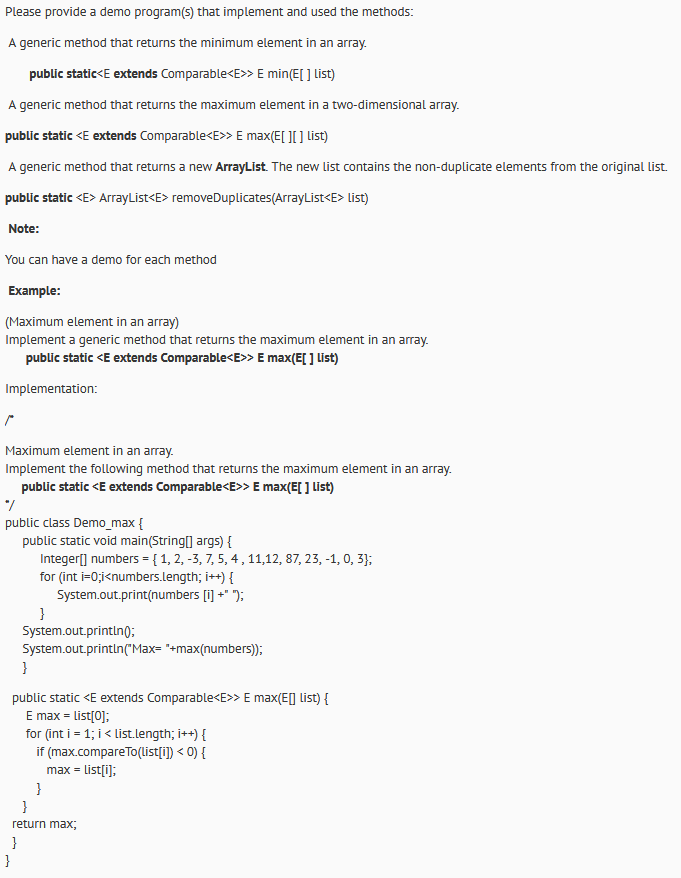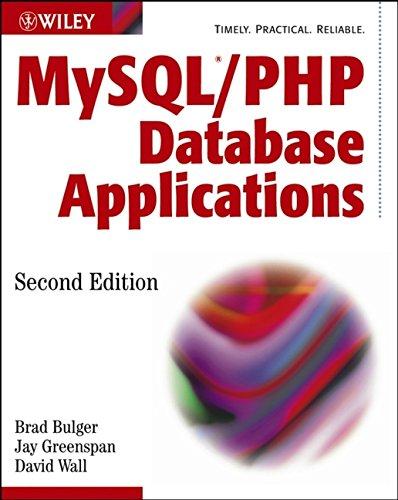Question
JAVA QUESTION: Please provide a demo program(s) that implement and used the methods: A generic method that returns the minimum element in an array. public
 JAVA QUESTION:
JAVA QUESTION:
Please provide a demo program(s) that implement and used the methods: A generic method that returns the minimum element in an array. public static> E min(E[ ] list) A generic method that returns the maximum element in a two-dimensional array. public static > E max(E[ ][ ] list) A generic method that returns a new ArrayList. The new list contains the non-duplicate elements from the original list. public static ArrayList removeDuplicates(ArrayList list) Note: You can have a demo for each method Example: (Maximum element in an array) Implement a generic method that returns the maximum element in an array. public static > E max(E[ ] list) Implementation: /* Maximum element in an array. Implement the following method that returns the maximum element in an array. public static > E max(E[ ] list) */ public class Demo_max { public static void main(String[] args) { Integer[] numbers = { 1, 2, -3, 7, 5, 4 , 11,12, 87, 23, -1, 0, 3}; for (int i=0;i> E max(E[] list) { E max = list[0]; for (int i = 1; i Please provide a demo program(s) that implement and used the methods: A generic method that returns the minimum element in an array. public static
Step by Step Solution
There are 3 Steps involved in it
Step: 1

Get Instant Access to Expert-Tailored Solutions
See step-by-step solutions with expert insights and AI powered tools for academic success
Step: 2

Step: 3

Ace Your Homework with AI
Get the answers you need in no time with our AI-driven, step-by-step assistance
Get Started


